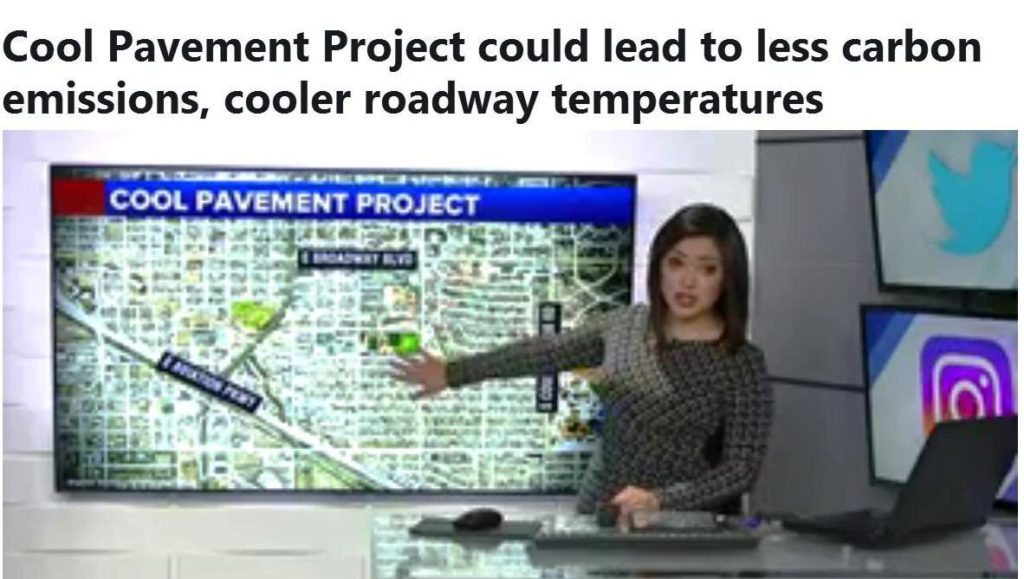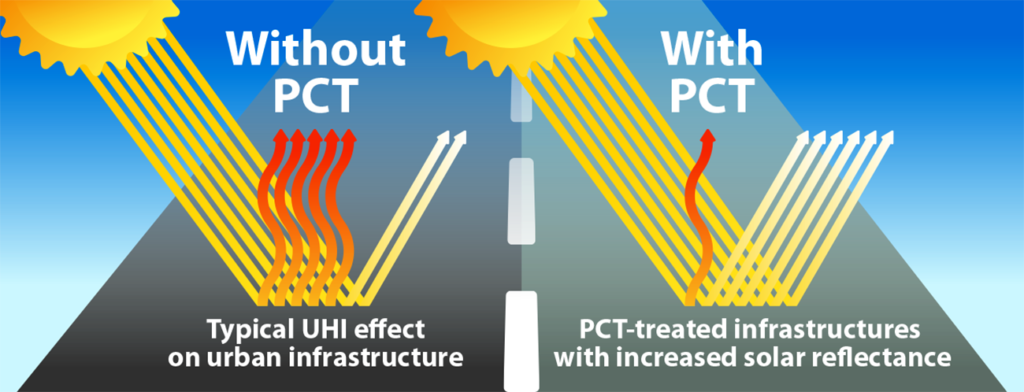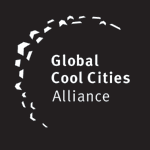NEWS ALERT – City of Tucson Pilots Cool Pavement Program with University of Arizona
Category: PTI in the News By: admin

FOR RELEASE ON 2/21/2022
Westlake, OH – The City of Tucson, AZ recently partnered with the University of Arizona to evaluate the performance attributes of a new surface treatment for asphalt pavements designed specifically to reduce pavement emissivity (i.e., a surface’s ability to emit radiant heat), thereby mitigating the Urban Heat Island (UHI) effect that causes health concerns and rapidly deteriorates the quality of pavements.
The City of Tucson’s Department of Transportation and Mobility applied a PlusTi™ asphalt rejuvenation treatment developed by Westlake, Ohio-based Pavement Technology, Inc. (PTI) on a portion of Country Club Road in December 2021. The treatment deploys photocatalytic technology that reduces emissivity by tripling the solar reflectance value (SRI) of pavements. This new technology also meets the USGBC’s LEED and APWA/ISI ENV requirements for UHI reduction.
Tucson is a member of the Global Cool Cities Alliance (GCCA). This pilot project was developed in collaboration with the GCCA’s Cool Roadways Partnership, a consortium of jurisdictions, organizations and manufacturers committed to achieving scalable deployment of cool roadway options that foster heat-resilient communities.
Previous testing by the Texas A&M Transportation Institute at numerous pilot sites around the United States has demonstrated significant improvements in the SRI values of pavements treated with PlusTi™ technology. The University of Arizona will be conducting complementary testing related to human comfort factors, which are an adverse side effect of older albedo (aka “White asphalt”) products. Unlike albedo techniques, which cool pavement surfaces only, PlusTi™ roadway solutions embed into pavements UV-reflective TiO2 nanoparticles that are able to reduce emissivity and the air temperatures of surround areas at scale.
Michael Durante, PTI’s vice president of finance & strategic planning, explains: “Albedo products are very effective on roofs to lower BED (Building Electricity Demand), but are more problematic on pavements due to durability, aesthetics and human comfort concerns. In contrast, UV technology reflects thermal energy rather than absorbing it, targeting emissivity to capture a 24-hour cycle through which daytime energy is absorbed and then later remitted when night arrives.”
The results of the study are expected to be published later in 2022, and will be made available at PTI’s www.smogeatingroads.com website at that time. For more information, contact Chris Evers at cevers@pavetechinc.com or your local PTI technical representative, or visit the Global Cool Cities.








